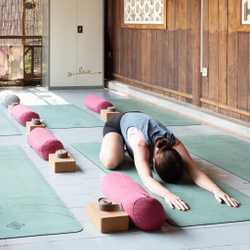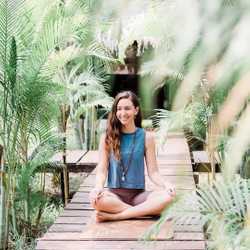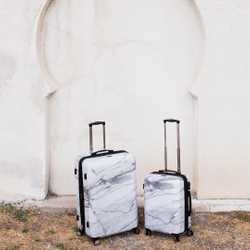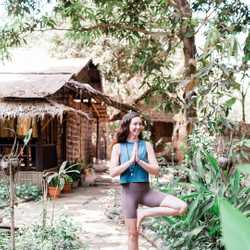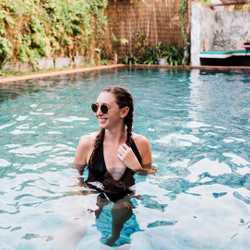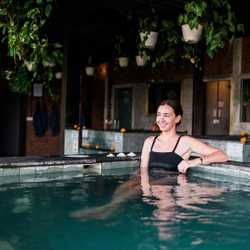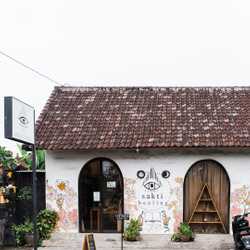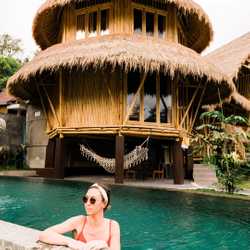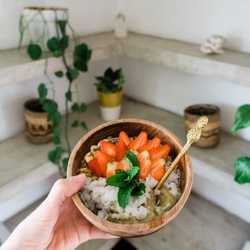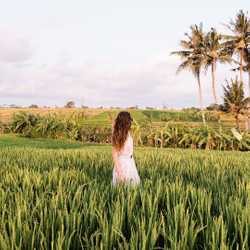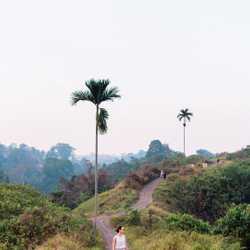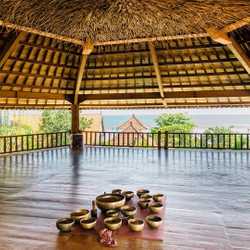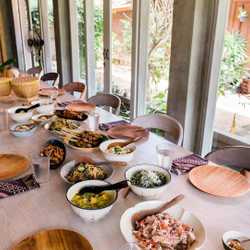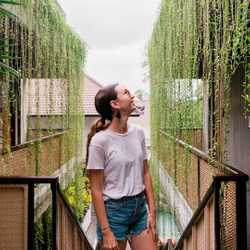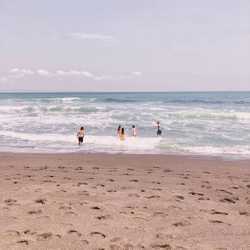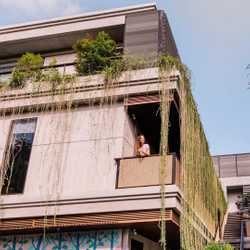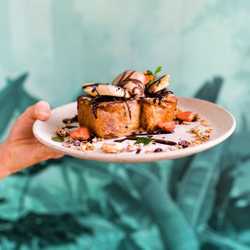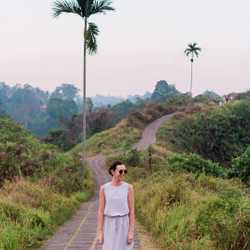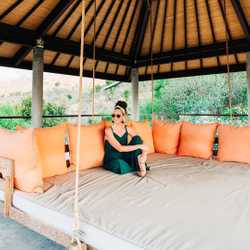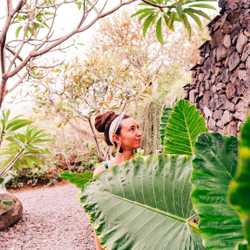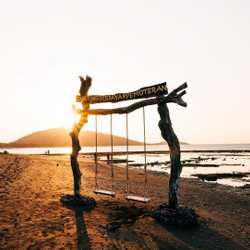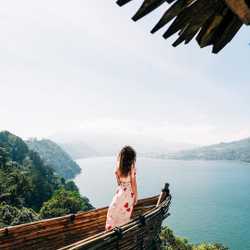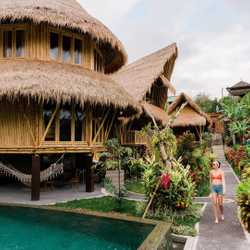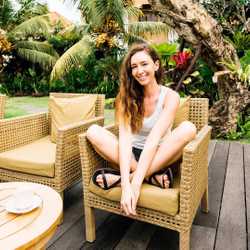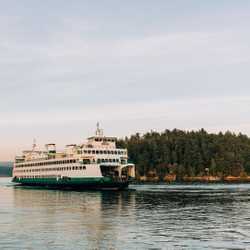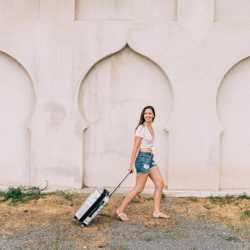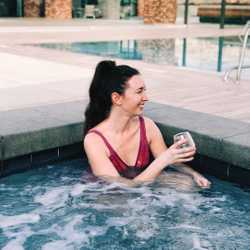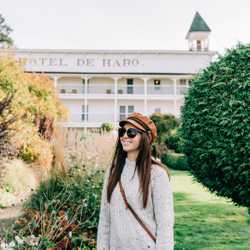What to Expect on the Bali Eco Cycling Tour
September 7th, 2019
The Bali Eco Cycling tour is a very popular tour in Ubud with over 1,500 five star reviews on TripAdvisor. I’m usually a little hesitant to book tours because I prefer authentic experiences over tourist attractions, but this tour was a great way to escape the hustle and bustle of Ubud and see the “real” Bali.
Jump to:
- Bali Eco Cycling price
- What to wear
- What to bring
- What to expect on your Bali Eco Cycling tour
- My experience
Bali Eco Cycling Price
The price of the Bali Eco Cycling tour is $40-50 per person, depending on when you book. If you book more than 5 days in advance and pay in full, you can get the early bird price of $40/person.
The tour includes:
- Pick-up and drop-off from your hotel
- Breakfast
- Lunch
- Water
- Coffee plantation tasting
- Rain poncho as needed
- Equipment and guides
What to Wear
The tour begins in Kintamani near Mt. Batur, which is quite chilly compared to Ubud. Bring a light jacket, windbreaker or hoodie that you can shed later if needed. A rain jacket is ideal, but not completely necessary as the tour provides ponchos.
Wear comfortable, breathable clothing that you don’t mind getting dirty — the bike tires will kick up dirt (or mud, if it’s a rainy day) which splats on the back of your shirt or on your backpack. For footwear, we both wore sneakers but sport sandals such as Tevas would be just fine.
The tour cycles through rural Bali villages, so be sure to dress modestly to respect the local culture. Shorts and tanks are fine, but riding bare-chested (men) or in a sports bra/bikini (women) is not.
What to Bring
Keep things light and bring the bare minimum. This is what we brought, and we had everything we needed:
- Small backpack
- Jacket
- Camera
- Sunscreen
- Bug repellant
- Sunglasses
- Water bottle (optional, as they provide water)
- Cash for any extras
What to Expect on Your Bali Eco Cycling Tour
The Bali Eco Cycling Tour is much more than a sightseeing tour — it’s an educational experience mixed with an active adventure. The full-day tour begins in Kintamani (up near Mt. Batur) where you’ll cycle 22 kilometers downhill, stopping in local villages to learn about the Balinese way of life. The tour itself is not strenuous since it's 90% downhill, but you may still work up a sweat if it's a hot day.
My Bali Eco Cycling Tour Experience
The tour began with pickup from our hotel in Ubud where we drove approximately 1 hour up to Kintamani to a restaurant called Amora for a buffet-style breakfast. Will and I chose to eat breakfast at our hotel before leaving for the tour, so we just nibbled on fried plantains and enjoyed the incredible view of Mt. Batur and Lake Batur!
After breakfast, we drove to a nearby coffee plantation called Oka Agriculture Bali where we tasted over 10 different kinds of coffee and tea, including the infamous Luwak coffee (for an extra 50K charge). Most of the coffees were traditional Balinese coffee mixed with different flavors, coconut creams, and sugars. They were all a little too sweet for me, but some of the concoctions were interesting, such as avocado coffee, coconut coffee, and ginseng coffee.
Luwak coffee, however, was good shit (pun intended). If you haven’t heard of luwak coffee, it’s lovingly referred to as “cat poop coffee” because it’s made from a coffee cherry that is ingested, fermented, and then expelled from a local critter called a Luwak. Each cherry is thoroughly cleaned and individually peeled before being roasted and made into Luwak coffee, so you don’t actually drink cat poop. Since tasting luwak coffee, I’ve learned that it’s actually a bit controversial due to potentially abusive animal practices. Some producers forage for wild luwak poop while others keep luwaks in captivity.
Okra Agriculture also grows clove, cinnamon, and other spices. Our tour guide actually pulled cinnamon bark straight from the tree for us to smell!
After the coffee plantation, cycling began!
Shortly after embarking on our cycling journey, we stopped at a traditional Balinese home to see their way of life and learn about their culture. Balinese homes are typically enclosed compounds comprised of multiple homes, each for a different generation of the family. The women in this particular compound were basket weavers and the men were honey farmers. We were told that one woman can weave about 30 baskets per day, which results in roughly $10 USD total.
We were a young, able-bodied group so our tour guide decided to take us “off-roading” to a rice terrace which ended up being rather rough and bumpy terrain. It wasn’t physically tiring but my hands did hurt from gripping my brakes.
At the rice terrace, we learned what it’s like to be a rice farmer (spoiler: it’s hard work).
Finally, there was a quick stop at an old Banyan tree before continuing the rest of the downhill journey to where we ate lunch, which was another buffet-style dining experience.
Overall, this was a fantastic tour with great views, interesting insight into the local culture, decent biking equipment, and mostly smooth roads. My husband and I both loved the tour and I would recommend it to anyone who who wants to see Bali by bike!
Get the Latest
Sign up for my Newsletter
Categories
Copyright © 2020 Passport to Wellness (Brittney Ayers). All rights reserved.
* You may not take any images or content from this site without written permission. For more information, contact us here.





